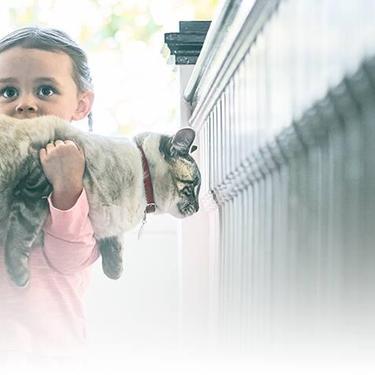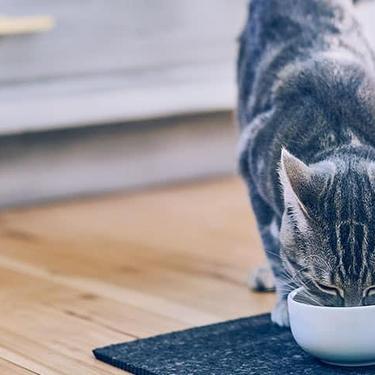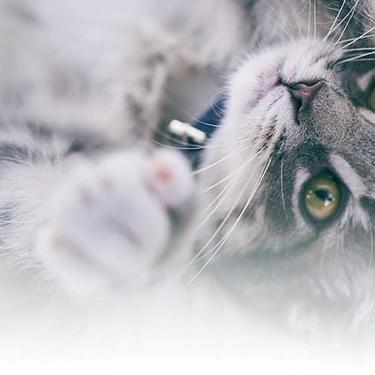
-
Find the right food for your petTake this quiz to see which food may be the best for your furry friend.Find the right food for your petTake this quiz to see which food may be the best for your furry friend.Health CategoryFeatured products
 Adult Large Breed Chicken & Barley Recipe Dog Food
Adult Large Breed Chicken & Barley Recipe Dog FoodSupports healthy joints, lean muscle, and beautiful coat for large breed dogs
Shop Now Adult Light Large Breed Chicken Meal & Barley Recipe Dog Food
Adult Light Large Breed Chicken Meal & Barley Recipe Dog FoodFewer calories for less active large breed dogs
Shop Now Hill's Science Diet Adult Healthy Mobility Large Breed Chicken Meal, Barley & Brown Rice Recipe Dog Food
Hill's Science Diet Adult Healthy Mobility Large Breed Chicken Meal, Barley & Brown Rice Recipe Dog FoodAdvanced nutrition shown to support joint health and improve mobility
Shop NowFeatured products Adult Oral Care Chicken & Brown Rice Recipe Cat Food
Adult Oral Care Chicken & Brown Rice Recipe Cat FoodClinically proven kibble technology to reduce plaque & tartar build-up
Shop Now Adult Perfect Digestion Chicken, Barley & Whole Oats Recipe Cat Food
Adult Perfect Digestion Chicken, Barley & Whole Oats Recipe Cat FoodHill's Science Diet's breakthrough nutrition supports ultimate digestive well-being & healthy microbiome
Shop Now Kitten Healthy Cuisine Tender Chicken & Rice Medley
Kitten Healthy Cuisine Tender Chicken & Rice MedleyDelicious tender chicken and rice in a mouthwatering sauce with precisely balanced nutrition to support 5 essential building blocks for lifelong health
Shop Now -
DogCat
- Cat Tips & Articles
-
Health Category
- Weight
- Skin & Food Sensitivities
- Urinary
- Digestive
- Kidney
- Dental
- Serious Illness
-
Life Stage
- Kitten Nutrition
- Adult Nutrition
Featured articles Adopting a Pet: What You Need to Know
Adopting a Pet: What You Need to KnowLearn the basics of adopting a pet, including where to begin and common questions you should ask yourself when deciding which kind of pet is best for you.
Read More Cat vs. Dog: Which Is the Best Pet for Me?
Cat vs. Dog: Which Is the Best Pet for Me?Learn about important differences between dogs and cats, such as cost & space considerations. These factors can help you decide which pet is best for you.
Read More Fun Ideas for Kids and Pets This Summer
Fun Ideas for Kids and Pets This SummerOutdoor summer activities with your dog or cat can be fun for kids, too. Learn how they also teach kids responsibility & creates a bond with their pet.
Read More -


From healthy kitten to happy cat
Every new kitten owner wants their cuddly new companion to grow into a healthy, happy cat. So it's important that you play a part in ensuring your kitten stays in good health. For example, correct feeding and completing the first course of vaccinations are essential for her to thrive. But also in that first year, pay regular visits to your vet for check-ups. That way, you can rest assured that your kitten is growing and developing to her full potential.


Tasty Tips
Maintaining a purrfect coat and healthy skin
The right diet, regular grooming and clean, comfortable living conditions should keep your kitten's coat and skin healthy. But unfortunately, kittens (just like adult cats) can suffer from skin conditions. Their hair can become dull, and may fall out, or their skin can become red, itchy and sore. The causes of these conditions vary, from sensitivity to a particular food, insect bites, allergies, mites, parasites, or even over-grooming.
Fleas
Some kittens develop an allergy to flea saliva; this is known as "flea-bite hypersensitivity" or flea allergy. If your kitten has this condition, she'll come out in itchy, crusty spots on her skin. And a single flea bite can cause a condition known as "miliary dermatitis" with the same unpleasant symptoms. If you notice any of these signs in your kitten, contact your vet right away and you'll be prescribed something to relieve the irritation and most importantly something to get rid of the fleas.
Ringworm
No, Ringworm isn't a parasite; it's the name given to a fungal condition that brings a kitten's skin out in a circular rash. Ringworm can be passed from cat to cat but also from cat to human. It's not easy to spot, so if you only have a suspicion that your kitten has a coat or skin problem, it's best to get in touch with your vet.
Your kitten's ears
Regular, gentle handling of your kitten, and especially her ears, will enable you to check them for problems without alarming her. And if your kitten does have a problem, you'll soon know about it. Firstly, her ear will be lowered, and she'll be likely to shake her head quite a lot, too. Also, if you happen to notice any grey or dark brown dry or waxy deposits, they're a sure sign of mites. Happily, they can be easily treated by your vet.
Your kitten's eyes
As you'd expect, your kitten's eyes should be clear and bright, with no discharge. Any stickiness in her eyes could be the result of an infection. Bathe the discharge from your kitten's eyes regularly, using a solution of warm water and salt (about a teaspoon to a pint is a good guide). Because the infection could have many causes it's best to take your kitten to the vet.
Catchooo!!
Sneezing can also be a sign of upper respiratory disease, often called 'cat flu', so if you notice anything more than the occasional sneeze, a visit to the vet is advised.
But it's also worth remembering that sneezing could be the result of pollen inhalation, a blade of grass or grass seed, dust, household sprays or cigarette smoke.


One of our staff authors prepared this article for you
Related products

Delicious tender chicken and rice in a mouthwatering sauce with precisely balanced nutrition to support 5 essential building blocks for lifelong health

Hill's Science Diet's breakthrough nutrition supports ultimate digestive well-being & healthy microbiome

Delicious roasted chicken and rice in a mouthwatering sauce

Clinically proven kibble technology to reduce plaque & tartar build-up
Related articles

Provide the best possible treatment for cats with sensitive skin by spotting the signs, knowing the causes, and understanding the remedies. Learn more now.

Understand the symptoms of a chronic upset stomach in your cat, and learn how to help sooth their discomfort.

Get helpful information on proper feline oral healthcare and why it's so vital to take care of your cat's teeth.

Obesity affects more than 30 percent of cats in America. Learn how you can properly feed and exercise your cat to improve its weight management.

Put your cat on a diet without them knowing
Our low calorie formula helps you control your cat's weight. It's packed with high-quality protein for building lean muscles, and made with purposeful ingredients for a flavorful, nutritious meal. Clinically proven antioxidants, Vitamin C+E, help promote a healthy immune system.
Put your cat on a diet without them knowing
Our low calorie formula helps you control your cat's weight. It's packed with high-quality protein for building lean muscles, and made with purposeful ingredients for a flavorful, nutritious meal. Clinically proven antioxidants, Vitamin C+E, help promote a healthy immune system.

